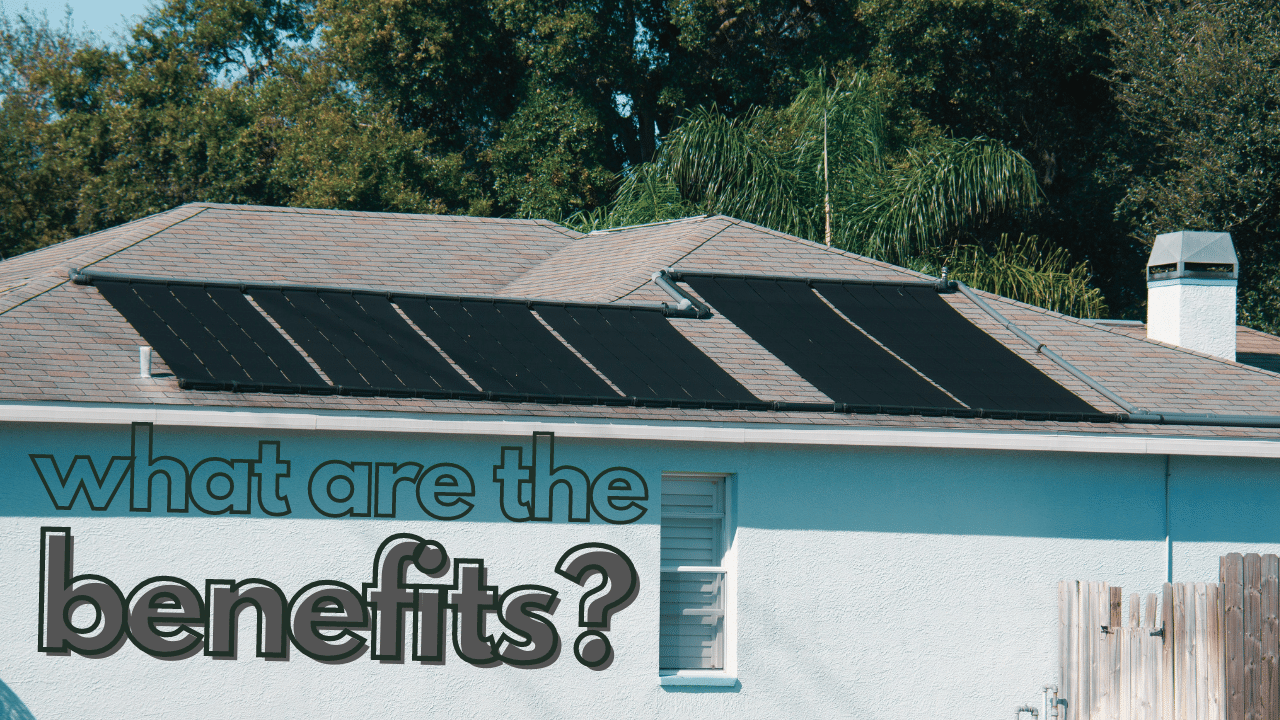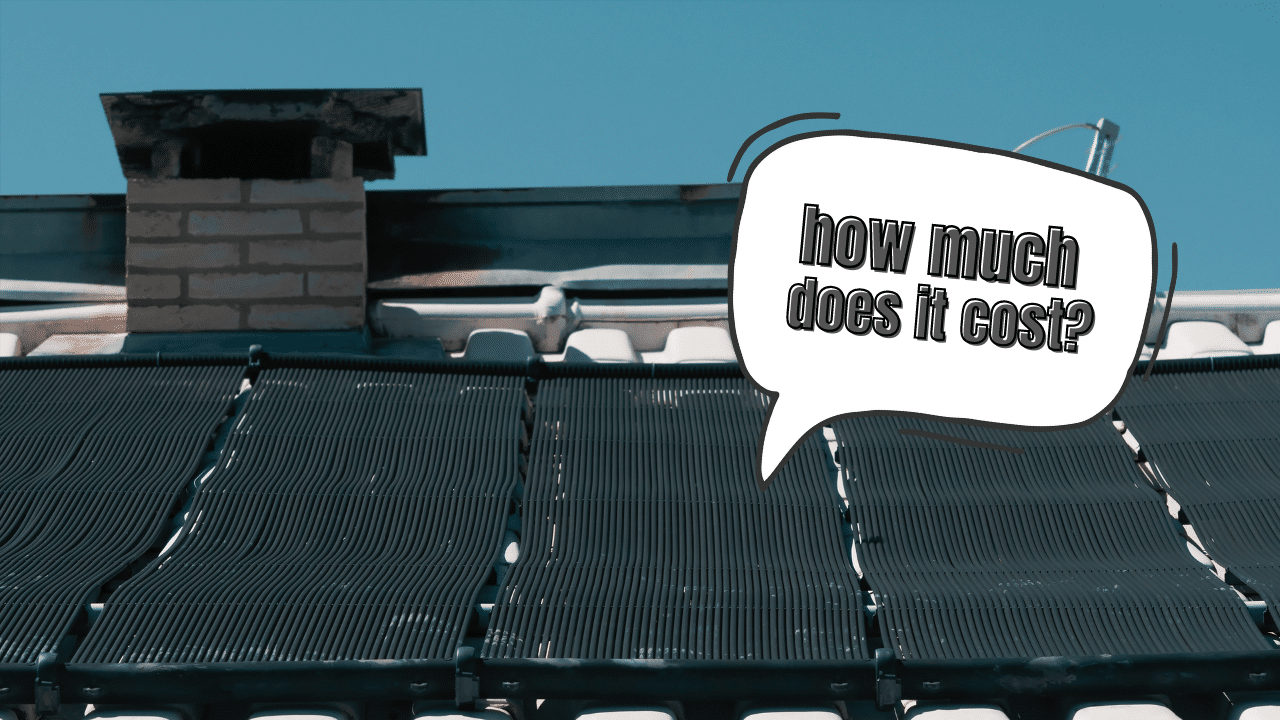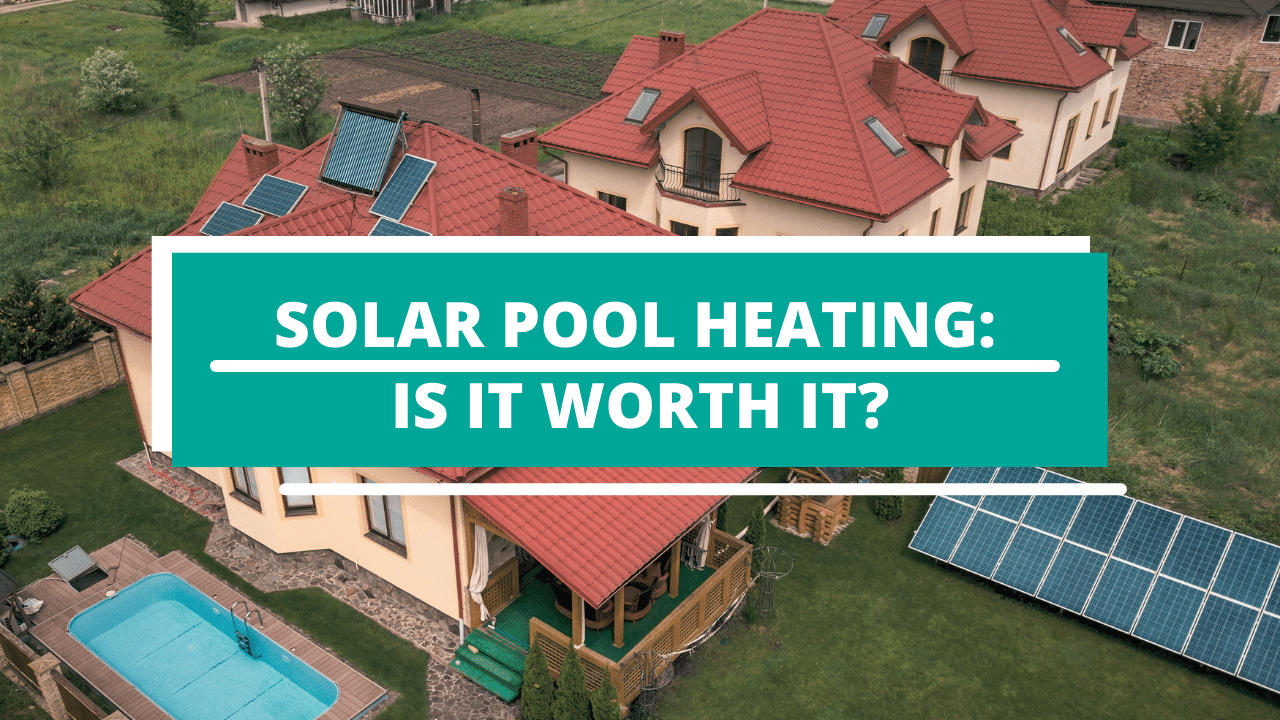The best solar pool heater could just be the most ideal option for you if you are looking for a more environmentally responsible way of pool heating or if you just want to save money on your pool expenses by removing the need for an in-ground conventional pool heater. A rising number of individuals are turning to solar pool heaters for warmth, and the finest solar pool heater may be the best choice for you.
You can easily integrate the usage of solar pool heaters into your current pool system, and they provide a few advantages that you may not have been aware of prior to installing a pool heater.
Equipment Needed to Operate a Solar Pool Heater
For solar pool heaters to work, just a few simple components such as sunlight, a solar collector (solar panel), a swimming pool filter, an automated swimming pool pump, as well as an automatic discharge control valve are needed. To be sure, it should not be overlooked that solar energy is a rather complex source of energy, but it should also not be disregarded. If you own a pool already, it's possible that you don't have a heating kit, which is imperative if you want to get the most out of your equipment and save money in the long run.
When it comes to solar heating systems, all you require is the money to buy one with your savings if you don't already have one. For solar panels to perform optimally, they should be installed in an open field that faces southwest and receives at least 5-6 hours of sunlight each day.
Their situation is favorable since there are many locations across the country that are suitable for this kind of work. Although living in a location with less sun exposure may limit your capacity to enjoy the benefits of solar energy, you may still be able to do so by simply increasing the size of your own solar panel installation to compensate for the difference in solar energy production.
Solar Collectors for Photovoltaic Systems
Solar collectors for photovoltaic systems are divided into three categories:
- 1Polypropylene (PP) Veined Mats
- 2Clear Solar Panels
- 3Unglazed Solar Panels
Polypropylene (PP) veined mats are a common type of solar collector. Solar collectors made of polypropylene (PP) veined mats are the most widely used kind of solar collector. Veined polypropylene (PP) mats are the most used kind of solar collector, accounting for about 80% of all solar collectors. According to the International Swimming Pool Heating Association, pool heating systems that utilize GLASSED SOLAR PANELS, which are just another kind of solar collector, account for more than 90 percent of all pool heating systems deployed globally.
Because glass-enclosed solar panels retain their good condition throughout the year, it is possible to get the maximum number of benefits for long-term use by using these solar energy systems. Throughout the inside of the building, copper tubing and aluminum plates are used in the construction, all of which help to ensure that the contents of the structure are kept safe. The use of iron-tempered glass is prevalent throughout the structure. Instead of glass, they are constructed of thick, UV-protected plastic or rubber, and they are considerably less costly than glass panels, which are significantly more expensive than rubber or plastic panels.
A mesh solar collector with many holes is not only the cheapest and generally accessible kind of solar collector, but it is also the most often used: it is the most affordable and widely available type of solar collector. Solar panels or mesh mats with certain polypropylene pores are used to convert light into heat, with the latter being more efficient. Polypropylene is used in the construction of both solar panels and mesh mats. Once this is accomplished, the heat produced may be utilized to power several different types of equipment.
Although solar collectors are available in a variety of forms and sizes, the aim of each is the same: to generate energy from sunshine. It is possible for all of them to contribute to increasing the temperature of the water in your swimming pool. A solar collector transports water into and out of the solar collector with the assistance of the pool pump in combination with the filter system respectively (glazed, unglazed, or polypropylene mat). This contributes to ensuring that heat is delivered into the water in the most efficient manner. You may be able to enhance the overall quality of the water in your swimming pool by installing a filtration system. Additionally, to a few other features, a few solar systems are equipped with sensors and valves that may identify and fix flow issues without the need for the user's involvement. On sunny days, it is standard practice to route the water via solar collectors if the water is warm enough to do so when the bypass is activated, and the bypass is switched on. Alternatively, if the water is too cold to flow through solar collectors, the process may be omitted entirely (in the case of a sunny day).

What are the Benefits of Using Solar Pool Heaters?
More information on the advantages of solar-powered pool heating may be found here. Solar energy pool heating has plenty of advantages, which you may learn more about by reading this article. This product provides the most environmental advantage since it is totally non-toxic to the environment when used. As a "green" form of energy, solar energy has the benefit of being both environmentally friendly and ecologically clean since it produces no harmful pollutants and does not need the extraction or use of any natural resources in the course of its production and distribution. With the use of a solar heater for pools, it is possible to significantly reduce both the environmental effect of the pool as well as the amount of money you spend on electricity.
Additionally, renewable energy sources such as solar energy are also ecologically beneficial. If all goes according to plan, a typical solar-powered swimming pool heater in a private setting might endure for 15 to 20 years in a typical setting with regular use. The installation of a solar heater will result in extra expenses, to be sure; but, the savings you will achieve in the long run will more than offset those costs.
Extra advantages of using a solar heater for pools include the opportunity to enjoy swimming for an additional couple of months, depending on the time of year, which is a little but significant advantage to having a pool. Since the swimming season in Florida lasts four months, a solar-powered pool heating system will be able to keep the pool warm even after the hottest days of the summer have passed. The fact that these heaters are among the quietest available commercially allows you to appreciate your pool while it is still being heated in total peace.

Solar Pool Heater: How Much Does it Cost?
A significant number of you have been anticipating this answer to the inquiry, "How much will it cost me?" It is possible to get solar pool heaters for as little as $2,500 per unit of heat produced or as much as $9,000 per unit of heat produced, depending on the features of the equipment. Among other factors, such as the kind of panels used and the length of time required to install them, the cost of solar panels will be decided mostly by the dimensions of the pool and the quantity of sunshine available in your region. (Related: How Pool Heaters Work: A Breakdown By Type)
Even though a solar pool heater is more expensive to purchase, the amount of money you save on your energy bills after installation compensates for the higher original investment.
Consider the following: even though you will not be responsible for the cost of solar energy, you will be liable for the expenses of operating both the filtration system and the irrigation system, which are not included in your solar energy bill. Make sure that you are familiar with the process for selecting the most suitable solar pool heater based on your requirements before proceeding.
Therefore, after determining that a solar heater for pools is the most appropriate option for your needs, you will need to decide which kind of solar pool heater would be the most suitable for your needs. Given that we recognize that this may be a difficult process for you, we've given you some ideas for starting places to help you on your journey.

